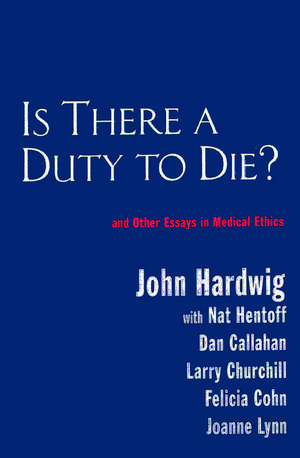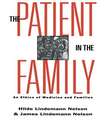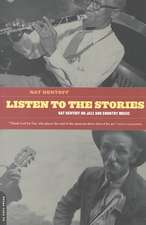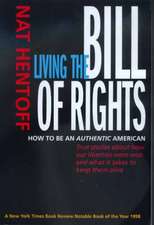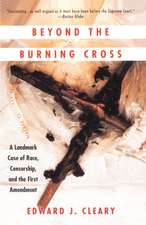Is There a Duty to Die?: And Other Essays in Bioethics: Reflective Bioethics
Editat de John Hardwigen Limba Engleză Paperback – 5 ian 2000
Preț: 336.45 lei
Preț vechi: 441.42 lei
-24% Nou
Puncte Express: 505
Preț estimativ în valută:
64.39€ • 66.97$ • 53.16£
64.39€ • 66.97$ • 53.16£
Carte tipărită la comandă
Livrare economică 14-28 aprilie
Preluare comenzi: 021 569.72.76
Specificații
ISBN-13: 9780415922425
ISBN-10: 0415922429
Pagini: 224
Dimensiuni: 152 x 229 x 17 mm
Greutate: 0.36 kg
Ediția:New.
Editura: Taylor & Francis
Colecția Routledge
Seria Reflective Bioethics
Locul publicării:Oxford, United Kingdom
ISBN-10: 0415922429
Pagini: 224
Dimensiuni: 152 x 229 x 17 mm
Greutate: 0.36 kg
Ediția:New.
Editura: Taylor & Francis
Colecția Routledge
Seria Reflective Bioethics
Locul publicării:Oxford, United Kingdom
Notă biografică
John Hardwig is Professor and Chair of the Department of Philosophy and Humanities at East Tennessee State University. This is his first book.
Recenzii
"Is There a Duty to Die? poses a powerful challenge to mainstream 'patient-centered' bioethics, leading us to rethink the significance of family interests in treatment decision. Hardwig writes with clarity, wit, and elegance; these essays are truly a pleasure to read." -- Chris Hackler, Director of the Divison of Medical Humanities, University of Arkansas for Medical Sciences
"With clarity and compassion, John Hardwig advocates a paradigm shift from a patient-centered to a family-centered bioethics. Just as families have a duty to care for those who are ill, those afflicted have a reciprocal duty not to become a crushing burden, which in some cases means a duty to die. The challenge for those who would object to this provocative idea, is to reform the health care system so as to mitigate any such duty." -- Francoise Baylis, Associate Professor of Medicine and Philosophy, Dalhousie University, Canada
"John Hardwig's precise and insightful essays intrepidly question moral orthodoxies and propose alternatives that are difficult to reject." -- Helga Kuhse, author of Caring: Nurses, Women and Ethics
"John Hardwig identifies some of the most difficult questions in bioethics, which others are too timid to confront, and writes about them in an admirably clear, lucid, and down-to-earth style. His Afterword, in which he elicits from a group of elderly what it means to them to die a responsible death, is itself worth the price of the volume. Any academic bioethicist who can engage in this sort of conversation with average people, and come away with such a rich set of insights, is a person well worth listening to." -- Howard Brody, Director, Center for Ethics and Humanities in the Life Sciences and author of the Healer's Power
"This is an important collection of essays that nurses interested in the moral dimension of their work will find thought provoking." -- Nursing Times
"John Hardwig's precise and insightful essays intrepidly question moral orthodoxies and propose alternatives that are difficult to reject." -- Helga Kuhse, author of Caring: Nurses, Women and Ethics
"This complication of essays, primarily by Harwig, centers on responsible death: when and how decisions should be made. Hardwig explores his personal philosophy on life, death, and the interactive nature of human beings; he believes that all decisions made by an individual have an impact on others, especially family. . . Generally well written, provocative, insightful, and based on the view that illness, suffering, and, especially, death are to be avoided as long as possible." --Choice, October 2000."
"This compilation of essays, primarily by Harwig, centers on responsible death: when and how decisions should be made. Hardwig explores his personal philosophy on life, death, and the interactive nature of human beings; he believes that all decisions made by an individual have an impact on others, especially family. . . Generally well written, provocative, insightful, and based on the view that illness, suffering, and, especially, death are to be avoided as long as possible." --Choice, October 2000."
"...these essays all take stands on important, though often neglected, questions in miomedical ethics related to an alleged duty to die. While controversial, Hardwig argues clearly and - in large part - convincingly...The commentaries and response add a dialectical give-and-take that makes this volume attractive for anyone teaching "duty to die" and related questions in a bioethics or applied ethics course." -- Ethics, January 2003
"With clarity and compassion, John Hardwig advocates a paradigm shift from a patient-centered to a family-centered bioethics. Just as families have a duty to care for those who are ill, those afflicted have a reciprocal duty not to become a crushing burden, which in some cases means a duty to die. The challenge for those who would object to this provocative idea, is to reform the health care system so as to mitigate any such duty." -- Francoise Baylis, Associate Professor of Medicine and Philosophy, Dalhousie University, Canada
"John Hardwig's precise and insightful essays intrepidly question moral orthodoxies and propose alternatives that are difficult to reject." -- Helga Kuhse, author of Caring: Nurses, Women and Ethics
"John Hardwig identifies some of the most difficult questions in bioethics, which others are too timid to confront, and writes about them in an admirably clear, lucid, and down-to-earth style. His Afterword, in which he elicits from a group of elderly what it means to them to die a responsible death, is itself worth the price of the volume. Any academic bioethicist who can engage in this sort of conversation with average people, and come away with such a rich set of insights, is a person well worth listening to." -- Howard Brody, Director, Center for Ethics and Humanities in the Life Sciences and author of the Healer's Power
"This is an important collection of essays that nurses interested in the moral dimension of their work will find thought provoking." -- Nursing Times
"John Hardwig's precise and insightful essays intrepidly question moral orthodoxies and propose alternatives that are difficult to reject." -- Helga Kuhse, author of Caring: Nurses, Women and Ethics
"This complication of essays, primarily by Harwig, centers on responsible death: when and how decisions should be made. Hardwig explores his personal philosophy on life, death, and the interactive nature of human beings; he believes that all decisions made by an individual have an impact on others, especially family. . . Generally well written, provocative, insightful, and based on the view that illness, suffering, and, especially, death are to be avoided as long as possible." --Choice, October 2000."
"This compilation of essays, primarily by Harwig, centers on responsible death: when and how decisions should be made. Hardwig explores his personal philosophy on life, death, and the interactive nature of human beings; he believes that all decisions made by an individual have an impact on others, especially family. . . Generally well written, provocative, insightful, and based on the view that illness, suffering, and, especially, death are to be avoided as long as possible." --Choice, October 2000."
"...these essays all take stands on important, though often neglected, questions in miomedical ethics related to an alleged duty to die. While controversial, Hardwig argues clearly and - in large part - convincingly...The commentaries and response add a dialectical give-and-take that makes this volume attractive for anyone teaching "duty to die" and related questions in a bioethics or applied ethics course." -- Ethics, January 2003
Cuprins
I. Introduction II. In Search of an Ethics of Personal Relationships (1989) III. What About the Family? (1990) IV. The Problem of Proxies With Interests of Their Own (1992) V. Support and the Invisible Family (1995) VI. Elder Abuse, Context, and Ethics (1996) VII. Dying at the Right Time--Reflections on (Un)Assisted Suicide (1996) VIII. Autobiography, Biography and Narrative Ethics (1997) IX. Is There a Duty to Die? (1997) X. Commentaries on Is There a Duty to Die? Nat Hentoff, A Duty to Die? Dan Callahan, A Burden Upon Others Felicia Cohn and Joanne Lynn, A Duty to Care Larry Churchill, Seeking a Responsible Death Dying Responsibly--Reflections on These Commentaries Afterword: Responsibilities of Those Facing the End of Life
